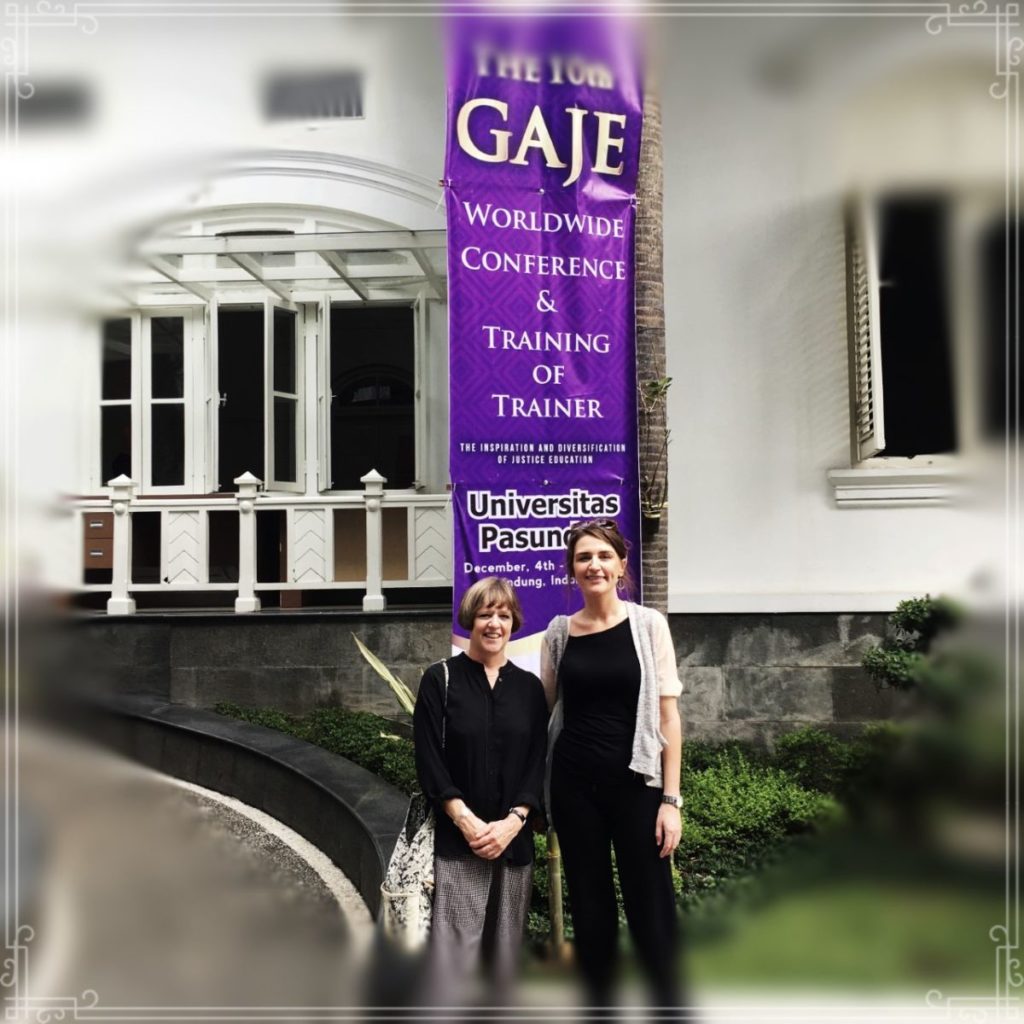Kathleen Bolt and Gillian Melville, legal supervisors at the Strathclyde Law Clinic, had the opportunity to attend the Biennial Conference organised by the Global Alliance for Justice Education in December 2019. The following article describes their experience.
“The Biennial Conference takes place in a developing country with the aim of extending participation in discussion and debate around justice education across as many countries as possible. This year the Conference was held in Indonesia. The Alliance exists to promote justice education in a variety of ways. At its heart is a commitment to the use of clinical legal education and student participation in the delivery of legal education to achieve social justice. This is best delivered using experiential learning. The University of Strathclyde’s law clinic and Clinical LLB is a prime of example of this.

“The Conference involved workshops spanning 5 days with two further days training in delivering clinical legal education and street law. Delegates from all over the developing and developed world participated- sharing experience of both clinical teaching methods and initiatives and the many and varied ways in which University students and staff, local lawyers and paralegals are working together to try to deliver social justice for marginalised groups through street law and legal clinics. There were a number of presentations from students including those hosting the Conference at Pasundan University, Bandung, where 100 student volunteers looked after delegates with great hospitality and care; many involved in street law projects with young people with disabilities, sex workers, elderly women involved in recycling plastic, an eco-project and people living with HIV and drug addictions.
“The Conference highlighted the nature of the social justice issues faced across the world, including gender-based violence, trafficking of women, detention of prisoners without trial and the needs of street children. How do we consult and involve communities in identifying the issues that are important to them, how do we tackle the disconnect between what law promises to people and what it delivers-and how do we ensure that people are aware of the rights that they even have?”
Kathleen Bolt concluded on her experience of the Conference:
“Everything we discussed could apply to any one of the communities in the countries and regions we represented in their own way. The Conference created an environment for sharing experiences and learning in a supportive and constructive way and represented all that is good about internationalism, a core value of this University.”
To receive monthly updates on the work completed by the University of Strathclyde Law Clinic straight to your email, please sign up here.